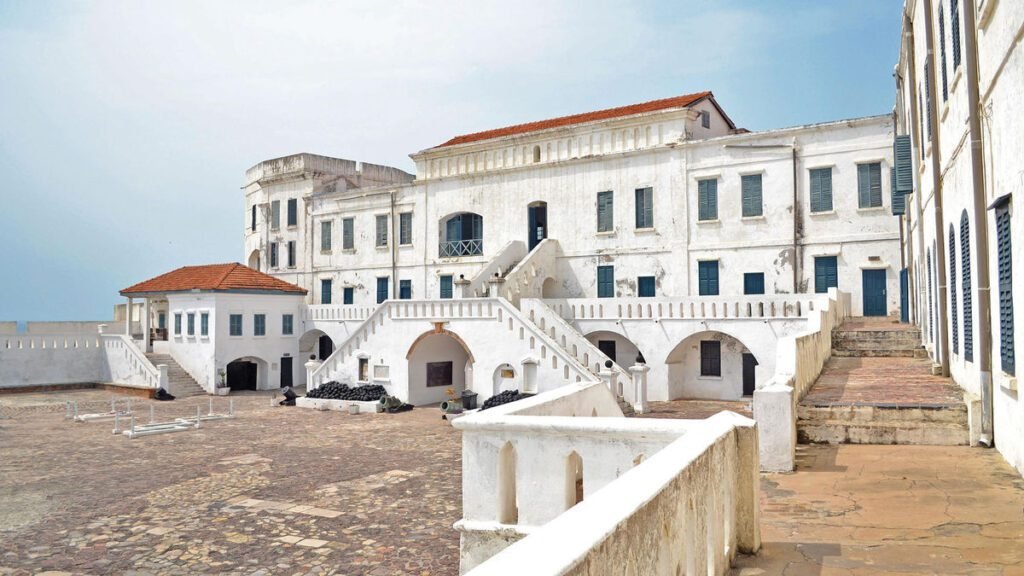West Africa is witnessing a surge in tourist interest, particularly in destinations like Senegal and Ghana, despite ongoing security concerns in certain regions. Data from *Statista* indicates that tourism revenue in West Africa is expected to approach $5 billion by 2025 and soar to $7.72 billion by 2029. A key driver of this growth is the diaspora travel movement, particularly among African Americans eager to connect with their roots. This trend was underscored at the recent World Travel Market Africa, which highlighted that Black travelers from the U.S. spent approximately $145 billion on global tourism in 2023.
Joy Cain, director of [Continent Tours](https://continenttours.com/), which specializes in travel programs to Ghana and Senegal, has observed a remarkable increase in business. “It’s bursting with interest from American travelers… everyone is trying to get a group into the destination,” Cain remarked.
The Rise Beyond Roots Tourism
As travel operators anticipate growth beyond traditional roots tourism, Senegal is emerging as an unexpected hotspot for surfing. “Senegal is one of the best surfing destinations,” said Cain. “It flies under the radar, but locals will tell you about some of the most beautiful surfing areas. There are surf clinics; it’s phenomenal.”
Gastronomy is another growing attraction in West Africa. “People underestimate West Africa’s culinary offerings,” said Cain. “French restaurants ingeniously blend local ingredients with European cooking methods, including Italian and Asian fusion, creating vibrant dining experiences.” Cooking classes focusing on these culinary arts have also gained popularity.
The corporate travel and MICE (Meetings, Incentives, Conferences, and Exhibitions) sectors are booming, with Continent Tours organizing familiarization trips for agents to boost engagement. Even destination weddings are trending, incorporating local customs such as “jumping the broom.”
Naa Addison, a travel advisor at [Uprise Travel](https://www.uprisetravel.com/), notes that heritage tours have evolved. “Clients explore transatlantic slave trade history but also participate in traditional naming ceremonies. This ritual allows them to connect with local culture in a meaningful way.”
Understanding Security in West Africa
While interest in West Africa’s tourism sector is increasing, travel advisors must take regional security differences into account. Mali serves as a cautionary example. Continent Tours had to suspend its well-known programs following Mali’s destabilization in 2011. “Mali was one of our more popular destinations,” said CEO Lloyd Murray. “Since the turmoil, travelers have largely avoided Timbuktu.”
James Wiggins, a former CIA operative now serving as vice president at [Global Guardian](https://www.globalguardian.com/), reported that attacks by JNIM (Jama’at Nasr al-Islam wal-Muslimin) have escalated in Mali, Burkina Faso, and Niger. He mentioned that major highways like the Trans-Sahelian Highway are currently at risk due to blockades, ambushes, and drone attacks.
However, Wiggins emphasized that these security issues are largely confined to inland areas and do not affect coastal destinations. Countries like Ghana, Senegal, Côte d’Ivoire, Togo, Benin, Gambia, Cape Verde, and Guinea Bissau remain largely unscathed by inland insecurity. “Tourism can actually help mitigate regional extremism by providing economic opportunities and global communication channels,” Wiggins explained.
Reality vs. Headlines
Operators in stable coastal nations report minimal security concerns from their clients. “Despite the challenges in Mali and nearby regions, Ghana and Senegal continue to attract tourists with their cultural richness and hospitable environments,” noted Addison from Uprise Travel.
Uprise Travel adopts a candid approach towards client concerns. “When clients voice worries about terrorism in West Africa, we provide informed, transparent insights,” Addison added. “Countries like Ghana and Senegal generally hold a low risk of terrorism.”
Travel agencies like Spector Travel mirror this calm perspective. “Clients haven’t been pressing us about terrorism, but if they did, we direct them to the U.S. State Department website for information,” a spokesperson stated.
Political uncertainties, rather than violence, have affected bookings recently. President Trump’s proposed travel restrictions have created misunderstandings, with potential travelers mistakenly believing that Ghana was under a travel ban.
Seizing Trade Opportunities in West Africa
For travel agents aiming to tap into West Africa’s growth, education is crucial. “Agents are embarking on familiarization trips because their clients are increasingly asking for West Africa,” Cain noted.
Wiggins recommends a proactive approach to risk management. “Be informed about the risks and plan accordingly, but don’t stop traveling; people love to explore. It’s important to partner with seasoned operators,” he advised.
As infrastructure improves, the prospects for West Africa’s tourism sector will continue to brighten. “Increasing direct flights and better connectivity are key contributors to growing interest,” Cain stated.
Early adopters will likely reap the most benefits. While Mali may take years to recover, coastal nations present immediate opportunities for agents prepared to educate themselves and their clients about the diverse realities within the region.
As the spokesperson for Spector Travel aptly put it, “Traveling to West Africa offers a unique experience unlike any other, but embracing the region’s customs and beliefs requires an open mind and respectful attitude.”


